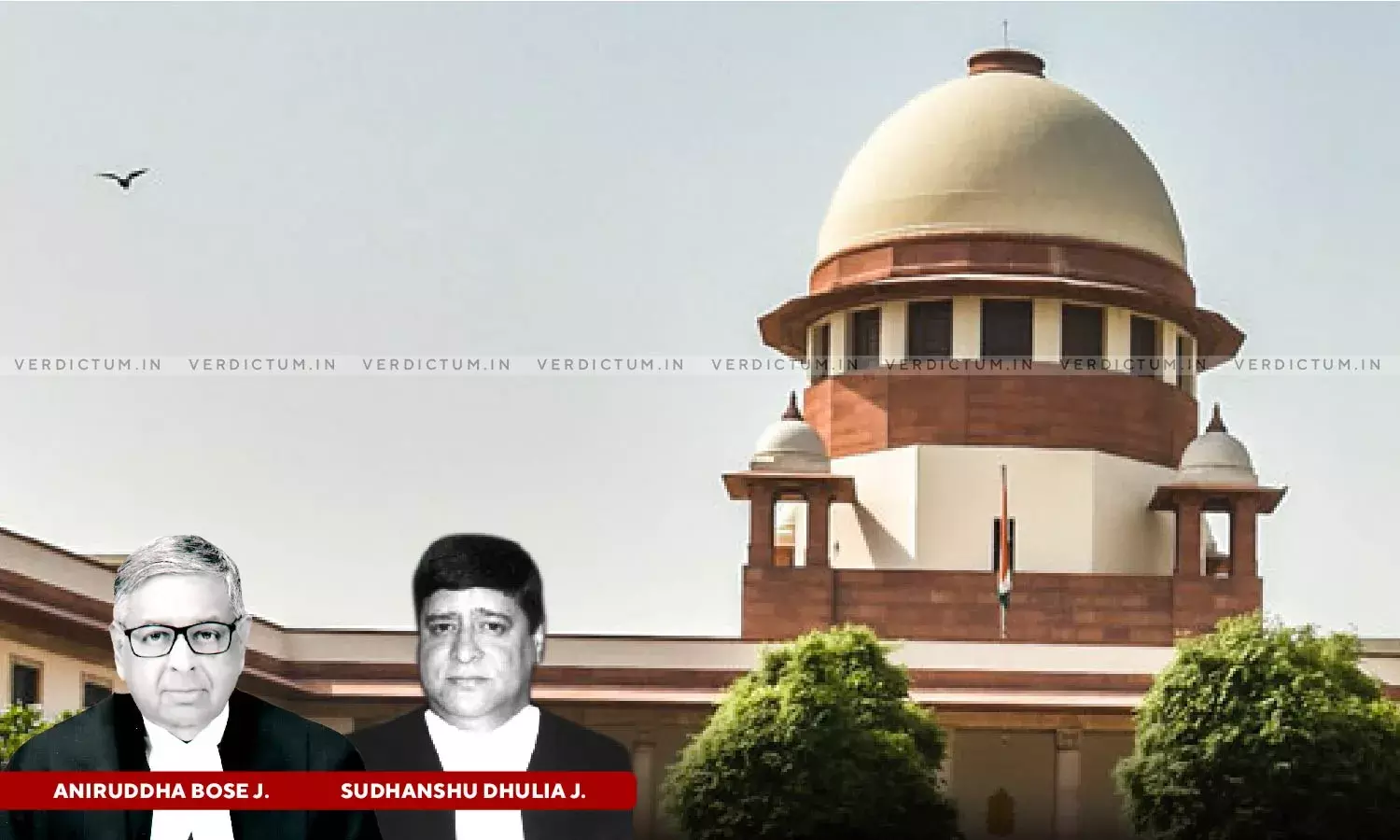SC Registry Cannot Dismiss Curative Petition Merely Because Review Petition Was Dismissed In Open Court Hearing: Supreme Court
The Supreme Court held that its Registry cannot dismiss a curative petition merely because the Review Petition was dismissed in the open court hearing.
The Court has explained the procedure in a case where curative petition arises from an order dismissing a review petition. It said that in such a case, the curative petition must contain a plea or prayer seeking excuse from compliance of making averment under Order XLVIII Rule 2(1) of the Supreme Court Rules, 2013.
The Court was deciding a batch of pleas filed by the firms who were aggrieved by an order of a Registrar of the Apex Court, declining registration of a set of petitions labelled as ‘curative petitions’.
The two-Judge Bench of Justice Aniruddha Bose and Justice Sudhanshu Dhulia observed, “We are of the view that a curative petition arising from an order dismissing a review petition upon hearing in open Court must contain a plea or prayer seeking excuse from compliance of making averment as contained in Order XLVIII Rule 2(1) of the 2013 Rules. The proper course for the Registry on receiving such a petition with a prayer to be excused from the above requirement would be to obtain instructions from the Judge in chambers and thereafter communicate such instructions to the parties. In the second part of Rule 2 it is provided that the Registrar herself can direct the applicant to serve the other party with a notice of motion returnable before the Court while she opines that it is desirable that the application should be dealt with in the open Court.”
The Bench added that the aforesaid part of the Rule would not apply in a case where the applicant seeking to invoke curative jurisdiction approaches the Court after the review petition is dismissed in open court hearing. It said that the applicant for invoking curative jurisdiction, in such a situation, must file an application praying to be excused from compliance with Rule 2(1) of Order XLVIII of the 2013 Rules and such application shall also contain a request for the matter to be placed before the chamber judge for proper instructions.
Senior Advocate Anand Sanjay M. Nuli represented the appellants while Senior Advocate Vijay Hansaria represented the respondents and Senior Advocate Raju Ramachandran was the Amicus Curiae.
Brief Facts -
The appeals were filed under Rule 5 of Order XV of 2013 Rules by the firms against the common order passed in six similar petitions including the one instituted by Brahmaputra Concrete Pipe Industries (appellant) founded on similar factual and legal grounds. The origin of the dispute ultimately leading to passing of the said order was related to the maintainability of a suit instituted by the firm under The Interest on Delayed Payments to Small Scale and Ancillary Industrial Undertakings Act, 1993. The suit of the appellant was decreed by the Civil Judge, Senior Division, Tinsukia, Assam (Trial Court) but was dismissed by the High Court in appeal mainly on the ground of the suit not being maintainable.
The High Court had held that the suit under the aforementioned 1993 Act would not lie in respect of the transactions which had taken place prior to September 23, 1992, the date on which the Act became operational. The appeal against the High Court judgment was dismissed by a three Judge Bench of the Apex Court on in 2019. The plea of review of the said judgment also failed and the review petition was dismissed after open court hearing.
The Supreme Court after hearing the contentions of the counsel noted, “The Registry in a situation of this nature, cannot keep the matter pending as “defective” either, as is done in the cases of delayed filing of petition unaccompanied by applications for condonation of delay. We are referring to this context by way of an illustration only. In such a situation, filing of an application for condonation of delay would cure the initial defect and it would be for the Court to decide as to whether the delay has to be condoned or not. In cases like the present one, curing the defect would not be within the Registry’s jurisdiction.”
The Court said that failure to make averment in terms of Rule 2(1) of Order XLVIII of the 2013 Rules is not one of the conditions which vests the Registry to refuse to receive a curative petition in itself.
“In other cases pertaining to curative petitions, in which the review plea is dismissed by circulation, the curative petition has to be circulated first to a Bench of three senior-most Judges of this Court and the Judges who passed the judgment complained of, if available. Thereafter, the course prescribed in sub-clauses (2), (3) and (4) of Rule 4 of Order XLVIII of the 2013 Rules shall be followed as may be applicable”, it further noted.
The Court also observed that no case has been made out by the appellant for invoking the curative jurisdiction to take relook into the case. Hence, it refrained from entertaining the curative petitions.
Accordingly, the Supreme Court disposed of the appeals.
Cause Title- M/s. Brahmaputra Concrete Pipe Industries Etc. Etc. v. The Assam State Electricity Board and Others (Neutral Citation: 2024 INSC 145)
Appearance:
Appellants: Senior Advocate Anand Sanjay M Nuli, Advocates Agam Sharma, Suraj Kaushik, Akhila Wali, Akhila Wali, Nanda Kumar, Dharm Singh, and Shiva Swaroop.
Respondents: Senior Advocate Vijay Hansaria and AOR Sneha Kalita.




